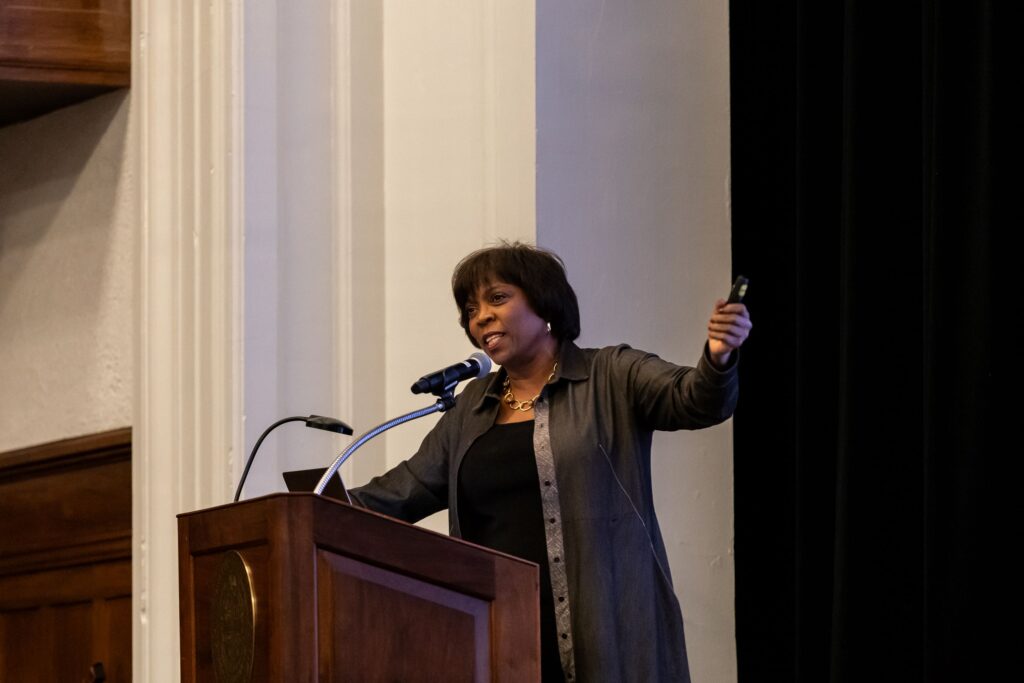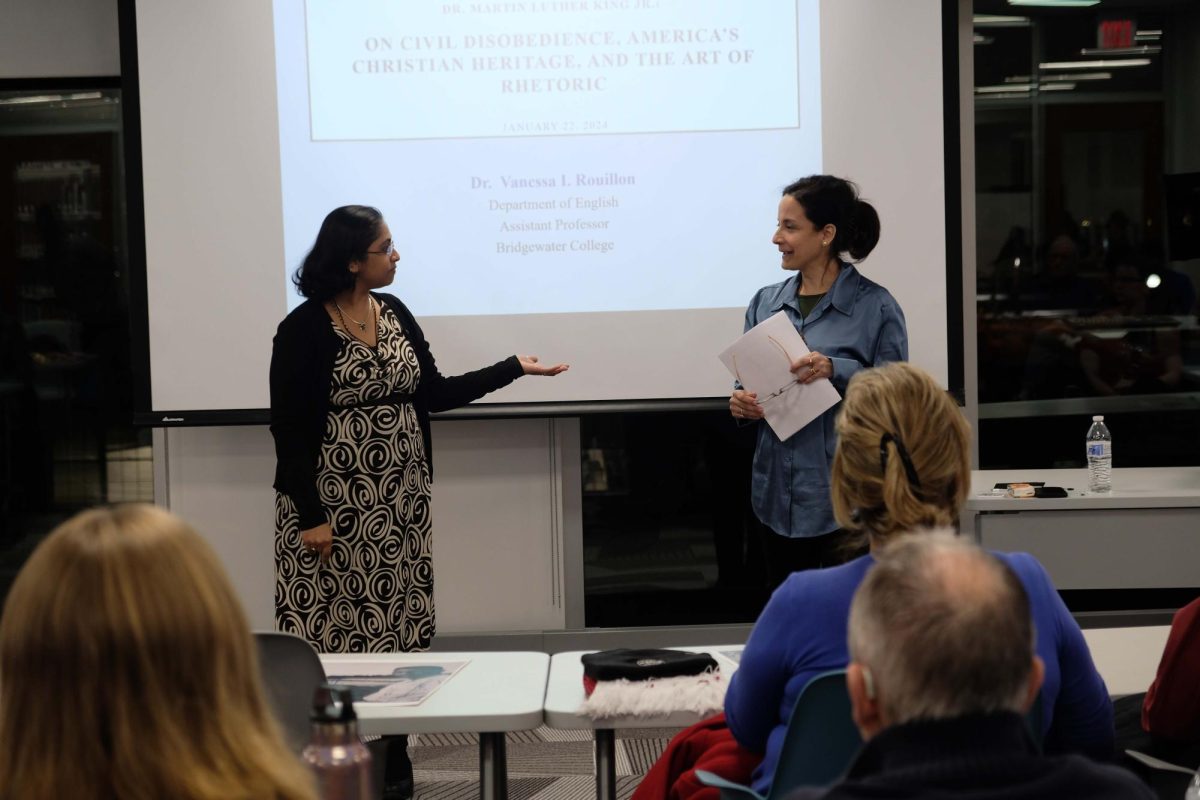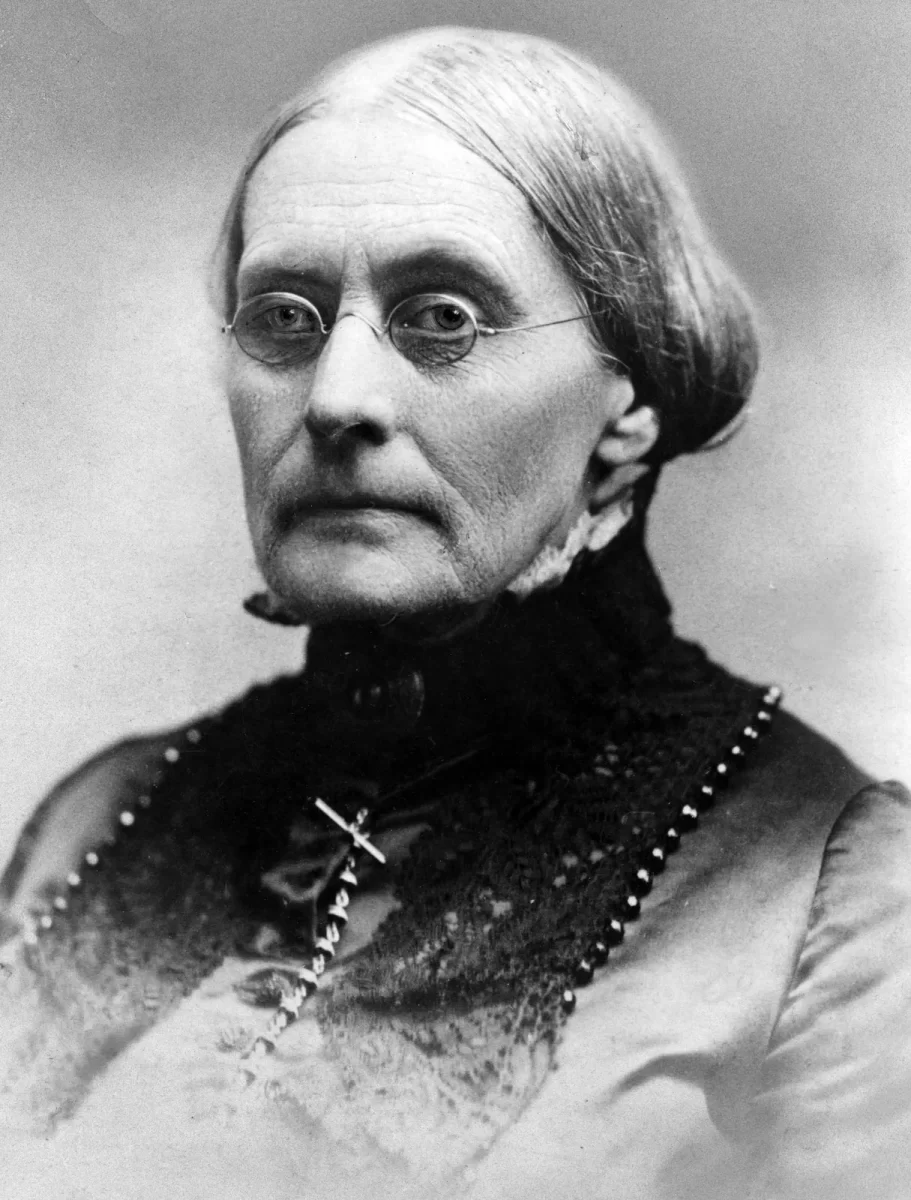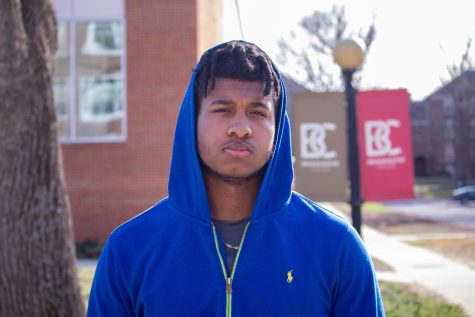Bridgewater, Va. – On Jan. 22, Bridgewater College hosted a teach-in session in the Forrer Learning Commons for the celebration of MLK Day with Dr. Vanessa Rouillon, Associate Professor of English.
Dr. Rouillon gave details about the campaign of desegregation that took place in 1963 and the major events that led to equality for African Americans.
Dr. Martin Luther King Jr. led an economic campaign in Birmingham, Alabama which led to a series of marches, sit-ins and boycotts in the city in early April of 1963. This caused King to get arrested for nine days, and during that time, he wrote a Letter from Birmingham Jail as a response to the criticism he faced from the Birmingham news.
The open letter known as a “call of duty” was written by eight white clergymen strongly urging the negro community to withdraw support from King’s demonstrations to avoid public disorder. King’s letter was also an argument for nonviolent protest supported in the Bible and the Constitution.
King was arrested 13 times for his acts of disobedience leading up to his campaign in Alabama. King embodied the dignified and stoic image of African American culture. He wore working clothing to the march, had a straight posture and direct eye contact. The mugshot that King received when arrested did not represent a criminal but a person fighting for human rights.
In 1963, he planned to lead a march for economic freedom fueling Governor George Wallace’s issue of the state of Alabama to prohibit any march or demonstration of the city. The bonds for those who were arrested increased to 8 times the normal maximum.
In King’s letter, he explained why he was willing to break the law and accept the punishment that came with it. In his letter, King stated, “I submit that an individual who breaks a law that conscience tells him is unjust, and who willingly accepts the penalty of imprisonment in order to arouse the conscience of the community over its injustice, is in reality expressing the highest respect for law.”
“Being a part of the MLK lecture was great to know the history of how desegregation has transpired today, due to his pursuit to fight for African Americans which makes everything a lot easier, being we all looked at the same,” said senior Jaylin Hertz.
“MLK Day has always been interesting to me because I like to review and learn about the history of the march that took place in Alabama, which is responsible for the freedom of segregation for African Americans,” said senior Kyle Clark.























































